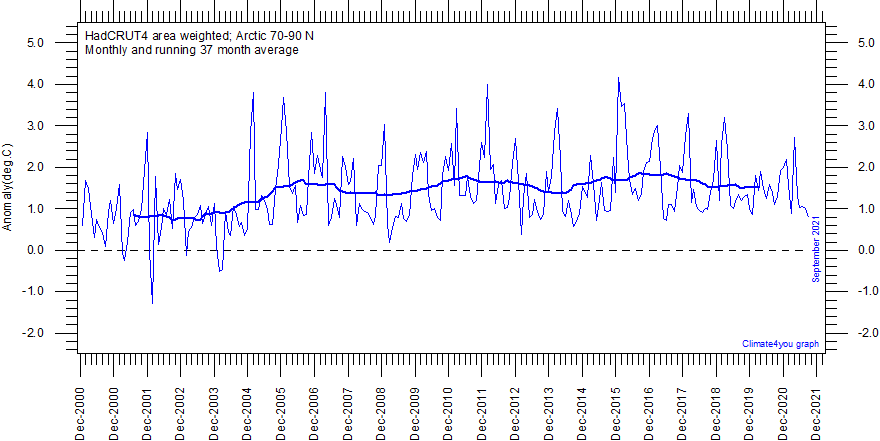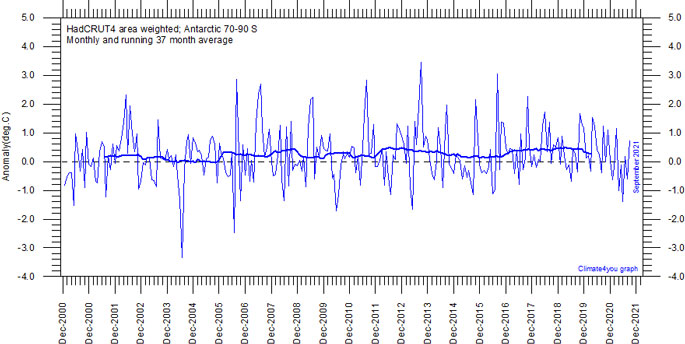Table of Contents
John Maunder
https://www.climate4you.com/Text/Climate4you
One example of what is contained in the above website are the charts of Arctic and Antarctic surface air temperatures from January 2000 to September 2011.
Each month Professor Ole Humlum of the The University Centre in Svalbard (UNIS), in Norway publishes on the web his very comprehensive web site updating a large number of charts and related analyses of data from international sources such as NASA.
His latest website can be found at: www.climate4you
HadCRUT4 is a global temperature dataset, providing gridded temperature anomalies across the world as well as averages for the hemispheres and the globe as a whole. CRUTEM4 and HadSST3 are the land and ocean components of this overall dataset, respectively.
These datasets have been developed by the Climatic Research Unit (University of East Anglia) in conjunction with the Hadley Centre (UK Met Office), apart from the sea surface temperature (SST) dataset which was developed solely by the UK Hadley Centre.

The chart shows area weighted Arctic (70-90 degrees N) monthly surface air temperature anomalies (HadCRUT4) since January 2000, in relation to the WMO normal period 1961-1990.
The thin line shows the monthly temperature anomaly, while the thicker line shows the running 37-month (c. 3 year) average.
The chart shows little change over the last 20 years.

Diagram showing area weighted Antarctic (70-90 N) monthly surface air temperature anomalies (HadCRUT4) since January 2000, in relation to the WMO normal period 1961-1990. The thin line shows the monthly temperature anomaly, while the thicker line shows the running 37-month (c. 3 year) average. The chart shows little change over the last 20 years.
For further information on a range of weather/climate matters see my recent book “Fifteen shades of climate” (Amazon)
BUY Your Own Copy of Dr John Maunders book Fifteen Shades of Climate Today.

Please share so others can discover The BFD.








